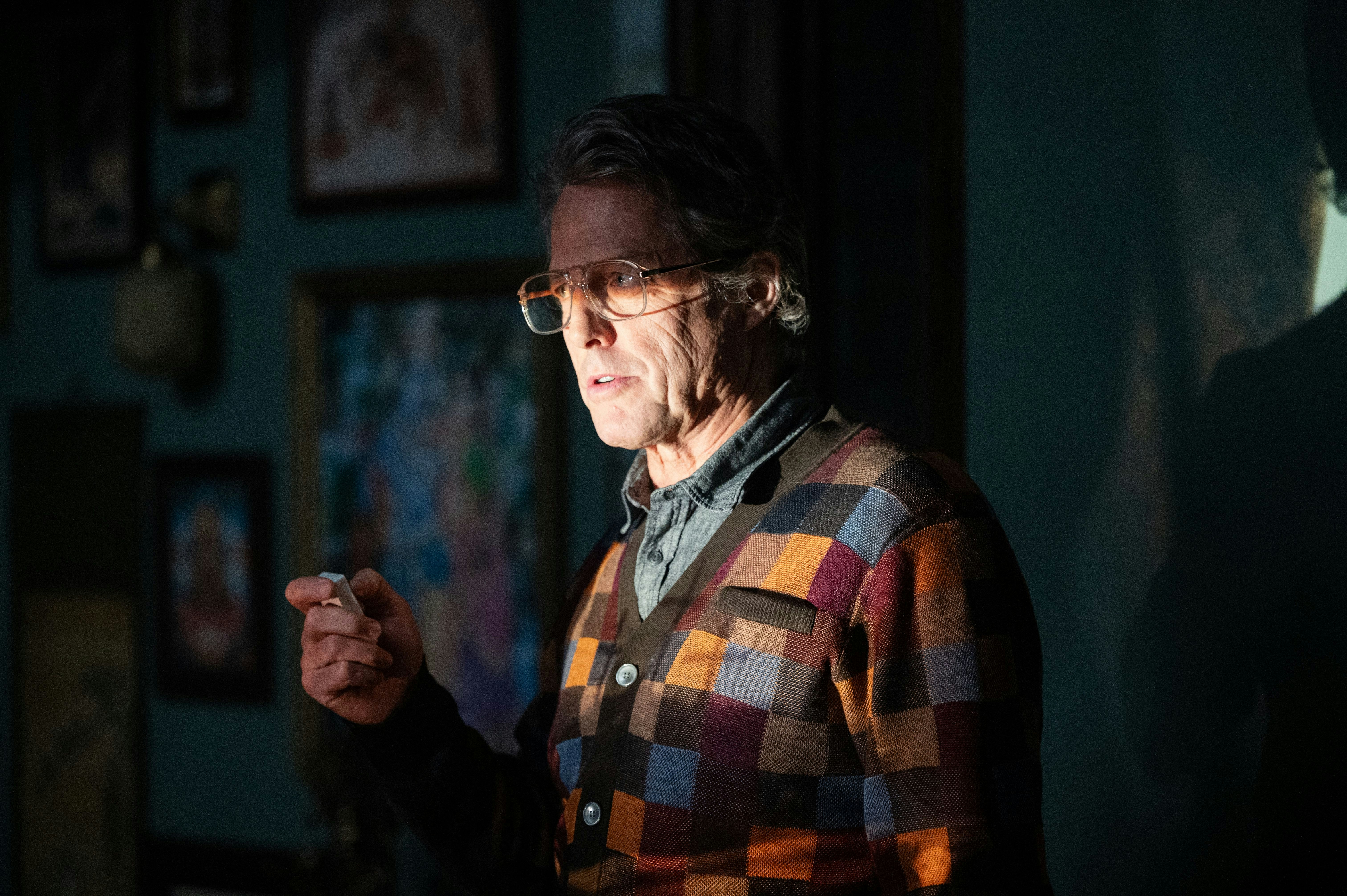
Does Hugh Grant know about Jar Jar Binks? That’s probably not a question you’ve ever considered before, but as I click the Zoom link and prepare to interview Scott Beck and Bryan Woods about their new film, Heretic, it’s at the top of my list of topics to discuss — right after diving into the filmmaking duo’s religious upbringing.
Believe it or not, both Star Wars and religion both play a pivotal role in A24’s latest psychological thriller from Beck and Woods (best known for creating the Quiet Place franchise). Heretic stars Hugh Grant as Mr. Reed, an obsessive religious scholar who lures two young Mormon missionaries (Sophie Thatcher and Chloe East) into a trap and attempts to convert them to his radical beliefs. Throughout its 110-minute runtime, the film grapples with everything from the origins of monotheism to whether future archeologists will think we prayed to Jar Jar Binks as a god.
For Beck and Woods, it’s a story they’ve wanted to tell for over a decade, but only recently felt like they were equipped to tackle.
“We started writing the script 10 years ago and had to stop once we got to the girls sitting down with Mr. Reed,” Woods tells Inverse, describing a scene that occurs about 15 minutes into the movie. “We didn't know enough about religion. So we spent about a decade (while we were doing other films) researching various religions, reading holy books, learning about different atheist and philosophical thinkers, and putting that all into the dialogue.”
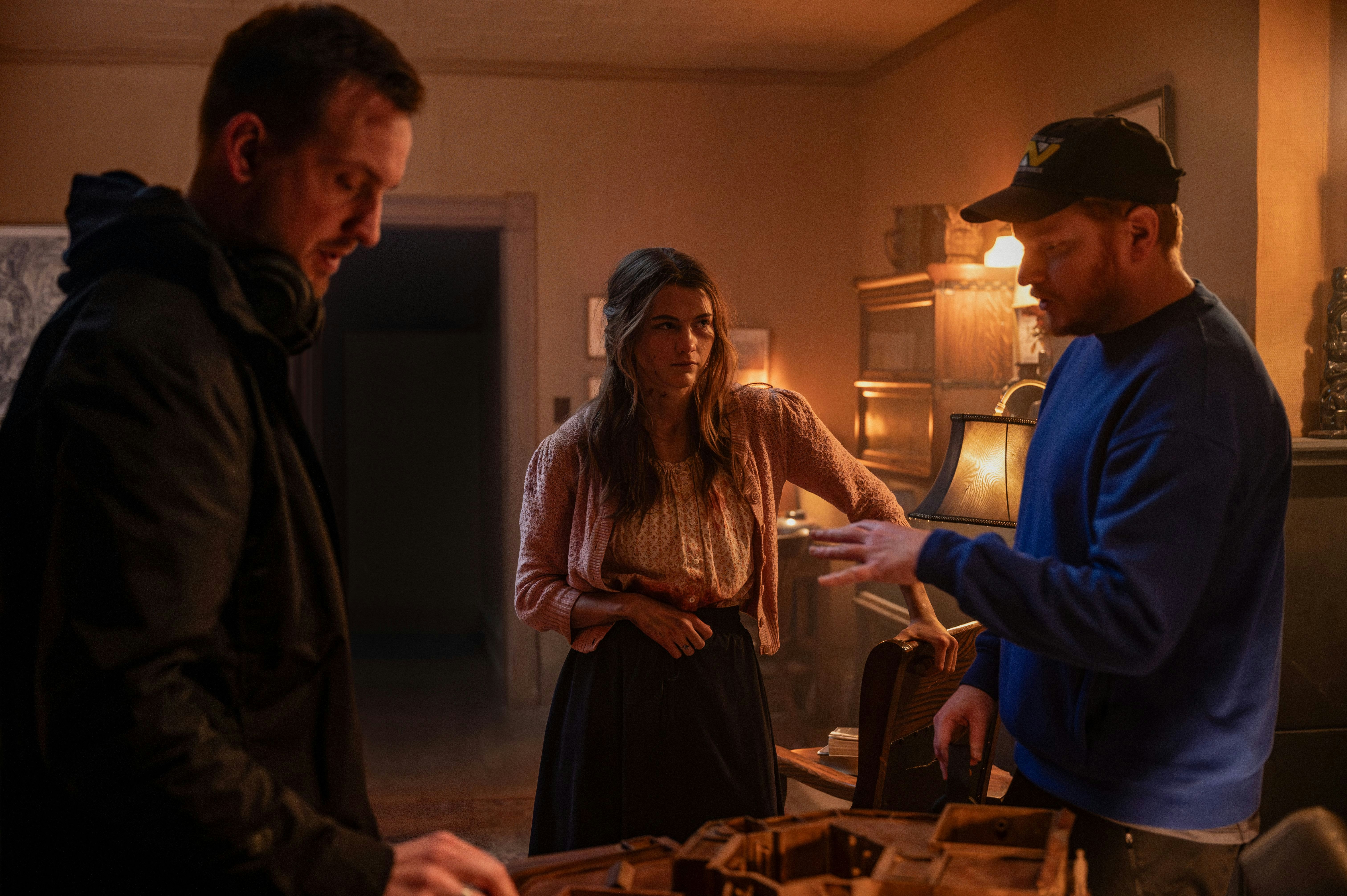
It was worth the wait. Heretic offers a vision of the religious horror subgenre like never before, relying less on jumpscares and more on the ability of its actors to deliver their increasingly unnerving dialogue with conviction — even as Grant’s character reveals his evil intentions and removes his mask of charm to reveal the insanity underneath.
“I've never read any script like this,” Thatcher says, “I've never been so impacted by a script where I just couldn't stop thinking about it. I couldn't get it out of my head.”
In conversations with Beck, Woods, Thatcher, and East (Grant was unavailable for interview), the team behind Heretic reveal how they all came at the film from a very personal perspective, and how the experience forced them to reckon with their own religious beliefs in one way or another.
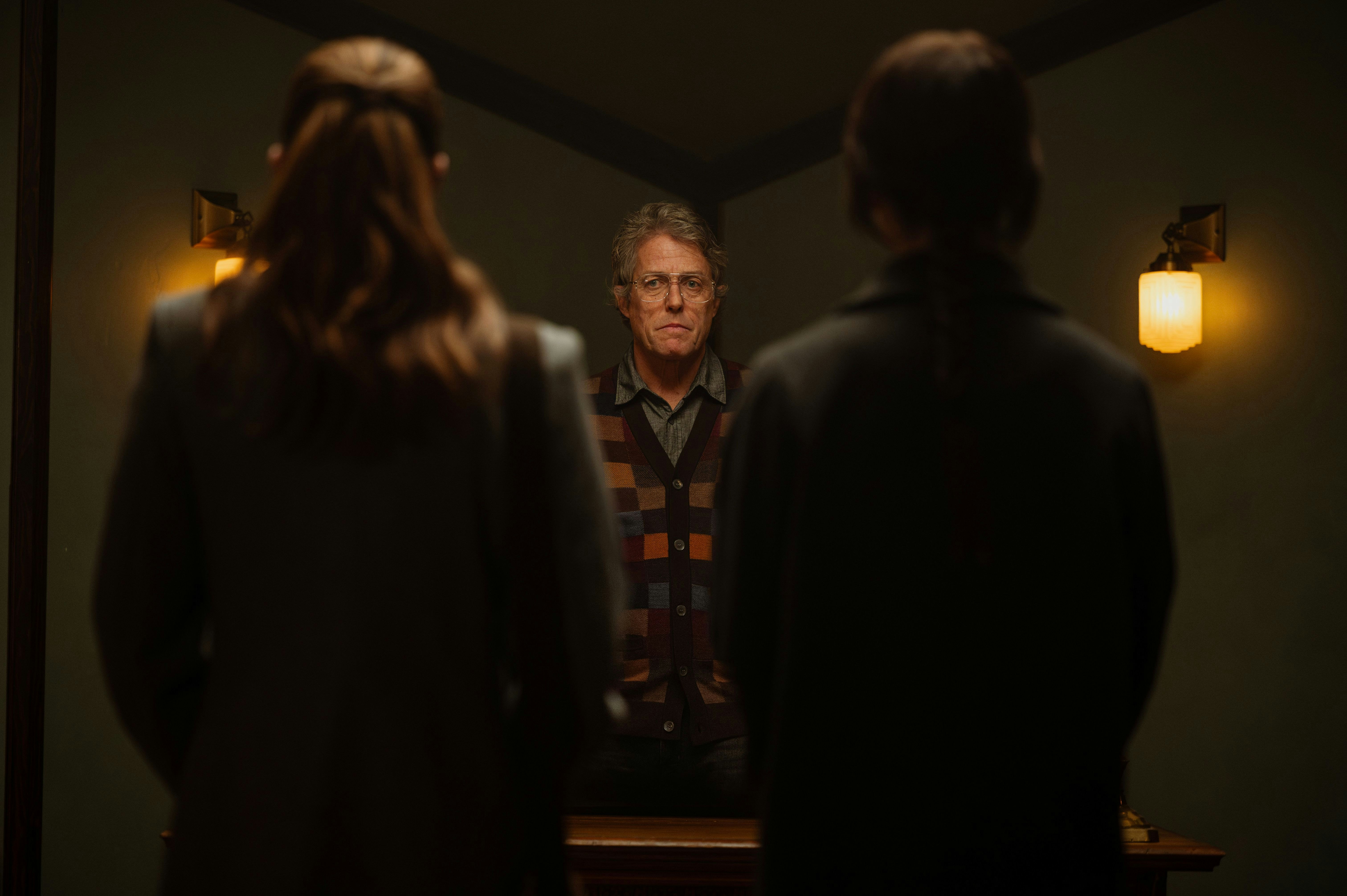
“Where we grew up, in Middle America, you're not even allowed to talk about religion at the dinner table,” Woods says. “It's an uncomfortable conversation to have.”
Beck and Woods grew up together in Bettendorf, Iowa. (They’ve been friends since they were 11 years old.) It was a small town without much religious diversity, and it wasn’t until later that they were exposed to other types of faith and belief.
“As we got older and moved outside of the state, our eyes opened up to the spectrum of religion,” Beck says, “marrying into families that had different religious beliefs, all of a sudden having friends that were from different belief systems: atheist, Scientology, Islam.”
“Other studios wanted to make this movie, but they wanted to make a movie that had less philosophy and less religion and less dialogue.”
It sparked an interest in how religion works and what makes religious organizations tick. Ultimately, for both Beck and Woods, religion is an attempt to answer one massive, unanswerable question.
“Religion is an answer to a fear of what happens when we die,” Woods says. “It's trying to make you feel comfortable about the fact that we're all going to die one day.”
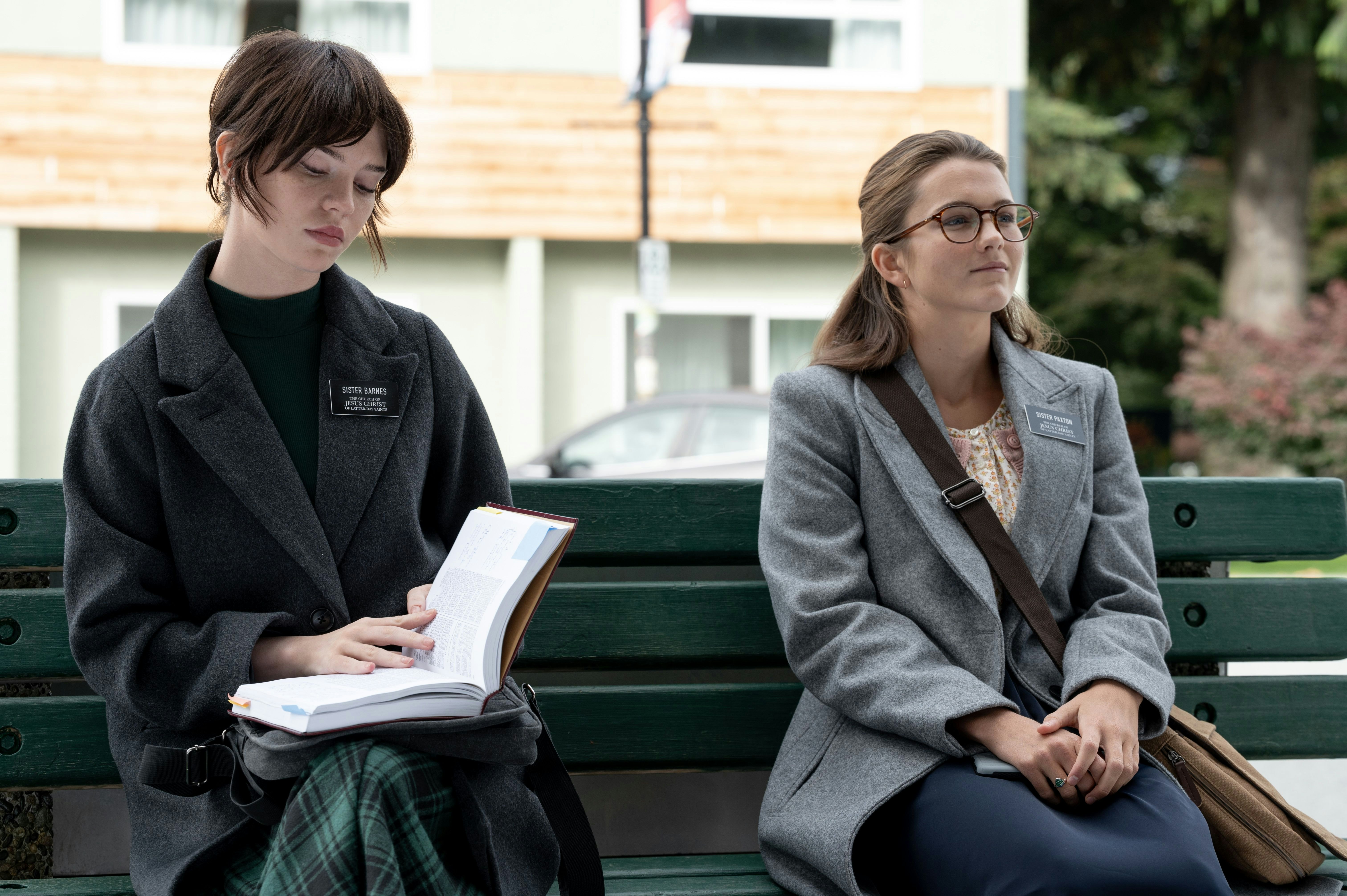
These ideas are all at the heart of Heretic, which pits two Mormon women (with varying degrees of faith) against a faithless man who’s determined to break them. He does so first by challenging the Mormon church (there’s a long, fascinating debate about polygamy early in the movie) and later by questioning the origins of monotheism itself.
If it sounds like Heretic is mostly a movie in which Hugh Grant stands around monologuing about religious theory, well, that’s only partially true. He also talks about pop culture, ranging from Star Wars to Radiohead to Monopoly, which all somehow connect back to religion. Beck and Woods are well aware of how rare it is to be able to make a movie like that, and they’re thankful to A24 for taking a chance on them and not trying to change their script into something more palatable.
“They are an entire studio built around taking big swings and investing in original ideas and filmmakers, and we've never felt more protected to make the movie that we wanted to make,” Woods says. “I know the other studios wanted to make this movie, but they wanted to make a movie that had less philosophy and less religion and less dialogue, and that was the opposite of the film that we were attempting to make.”
“You don't see [Mormonism] portrayed very truthfully in media. I get it. The stereotypes are funnier.”
Heretic’s religious plotline is also deeply personal to its two female stars, Sophie Thatcher and Chloe East, both of whom grew up in Mormon families. East, who still has friends who are active Mormons, saw the movie as a chance to set the record straight on the religion.
“You don't see it portrayed very truthfully in media,” she says. “I get it. The stereotypes are funnier, but I felt like I owed a lot of my friends a true representation of what we know and what I grew up with and seeing.”
Thatcher says she’s more removed from Mormonism after growing up with the religion, but saw the film as a chance to reconnect with that part of her history, taking the opportunity to once again talk to her mother and other family members about their faith.
“I hadn't revisited Mormonism,” Thatcher says. “It was something that was very much in my past. So it was interesting to come back full circle.”
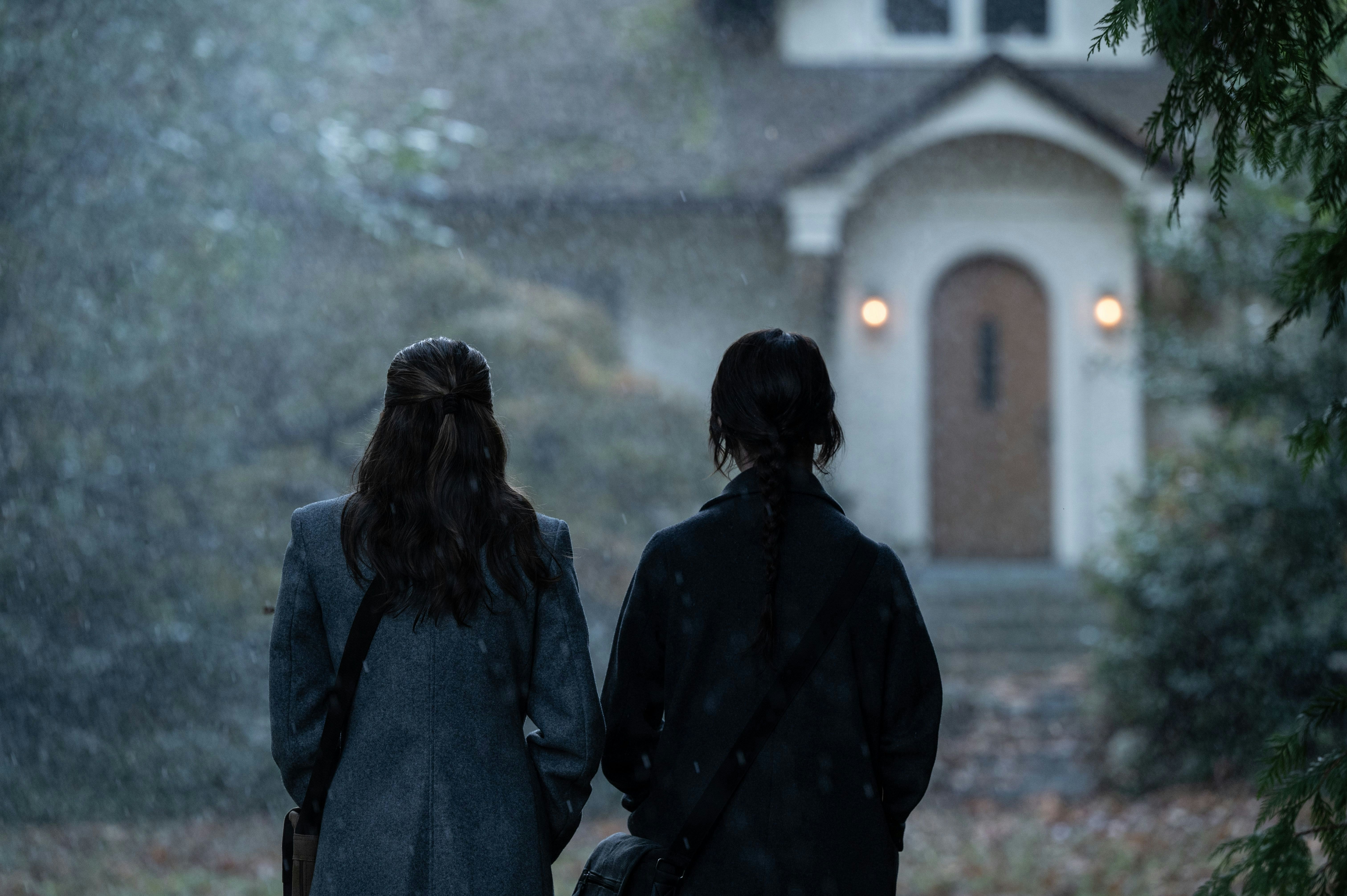
Beck and Woods say it was never their intent to cast actual Mormons for the movie. They actually only found out near the very end of the casting process.
“When we were honing in on them for the roles, we discovered their history with the Mormon church, which felt so serendipitous, and yet so obvious in terms of the truthfulness they brought to the casting process,” Beck says, adding that the two actors even improvised an entire scene early in the movie based on their personal knowledge of Mormonism.
But while playing a pair of Mormons may have come naturally to Thatcher and East, the movie’s third star needed to do a lot more homework to come to grips with his character’s complex perspective on religion and faith.
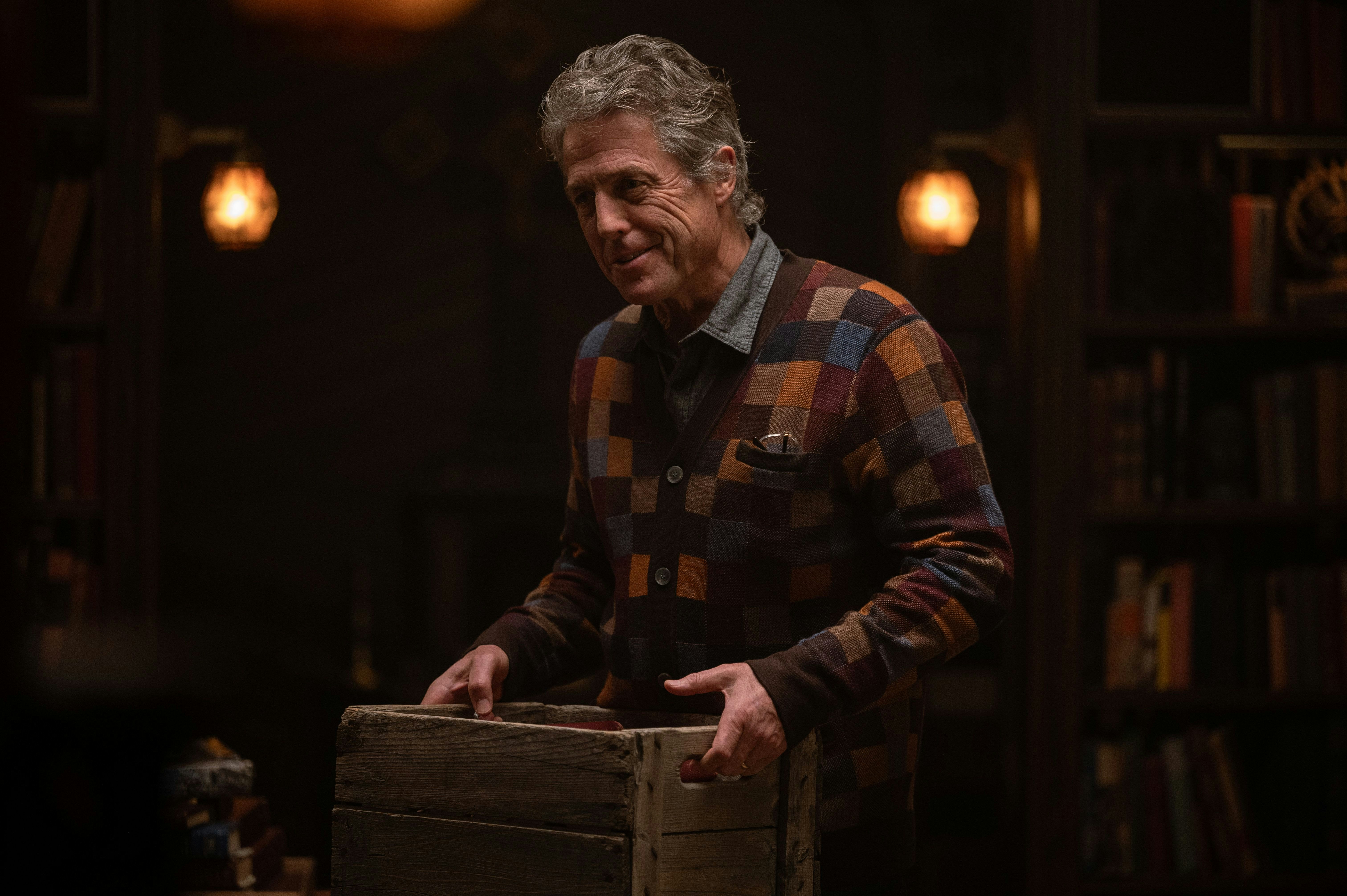
Hugh Grant’s career has gone in some surprising directions in the past decade. After making a name for himself as the charming guy in romantic comedies like Love Actually and Notting Hill, he’s suddenly taken a villainous turn in everything from Dungeons & Dragons to Paddington 2. But for Beck and Woods, the moment that Grant really cut loose can be traced back to 2012.
“We thought about our experience watching Cloud Atlas in a theater,” Beck says. “He transformed himself into multiple roles in this one film and then leveraged that into the next 12 years of disappearing into a different persona.”
The duo didn’t write Heretic with Grant in mind. “It really was a blank slate in our minds,” Beck says. But by the time the script was finished and they were ready to start casting, they knew it had to be him. “We were at the point where it can't be anybody else. He can't say no. Luckily, he connected to the script and was very into it.”
Grant dove into the film with enthusiasm. Woods describes a 200-page email thread in which they went back and forth with the actor as he made his way through the script. For each new concept he wasn’t familiar with (Heretic tackles everything from Voltaire to simulation theory), Grant would reach out for clarification.
“It was really a beautiful back-and-forth collaboration with him that we were just benefactors of,” Beck says.
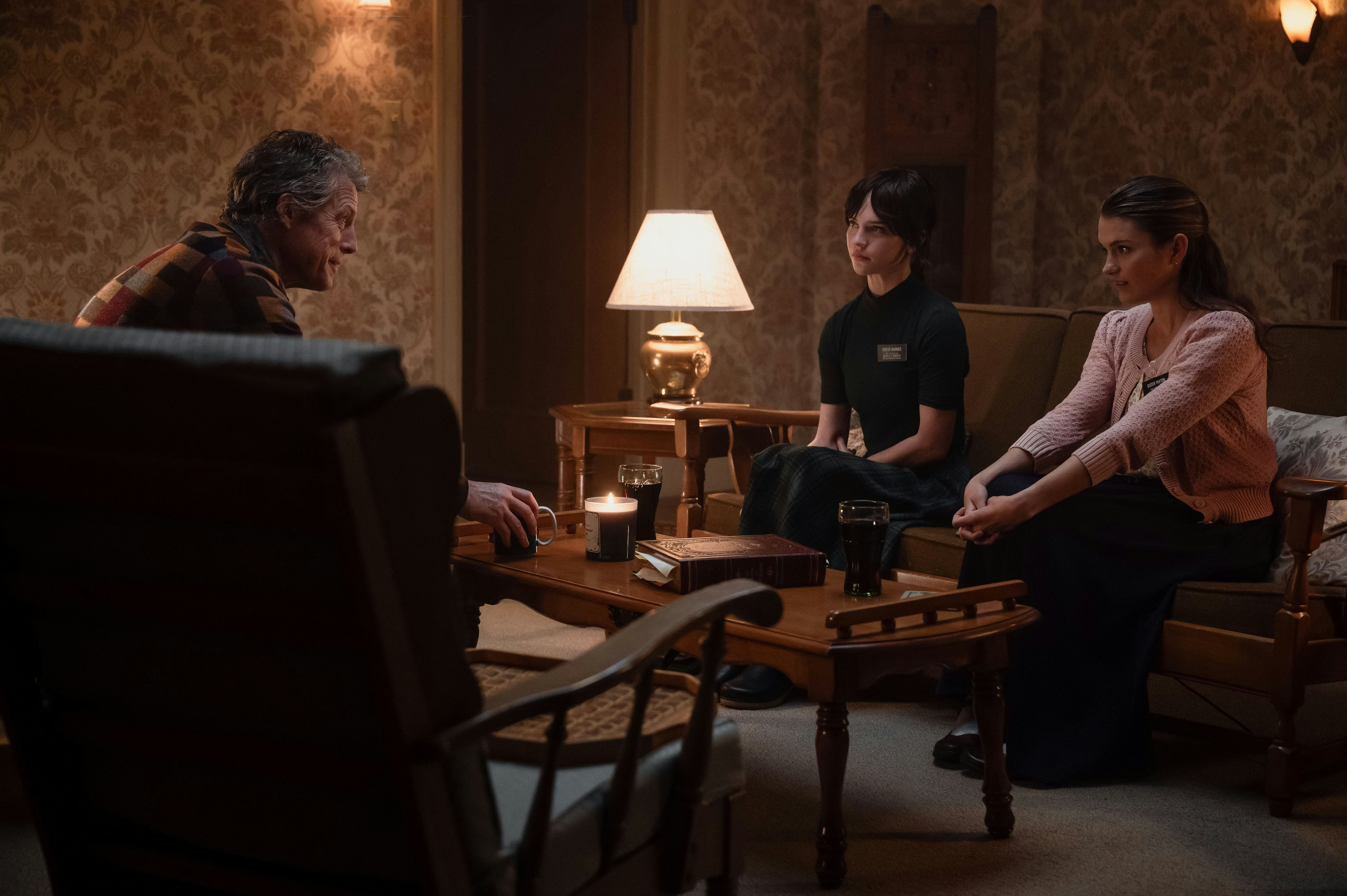
Grant also took on a bit of a mentorship role on the set of the film, giving his younger co-stars the support they needed.
“He had respect for us,” East says. “I never assumed someone should have respect for me as an actor, but he did. It gave us this confidence of being able to do this movie with him in such crazy circumstances.”
“When we saw The Rehearsal, we were like, Oh, that's like Reed.”
Grant’s character, Mr. Reed, is almost the exact opposite. He’s a manipulative villain who presents a front of charm before ultimately revealing his true, diabolical intentions. Without giving away too many of the movie’s razor-sharp twists and turns, I’ll say that every word Reed speaks and every action he takes is carefully calibrated to drag his two victims into a literal pit of despair.
Heretic’s villain might give off cult-leader vibes with a hint of Jigsaw, but Beck and Woods say they took their inspiration from a more unlikely TV character.
“We joked that he's kind of like Nathan Fielder with decision trees and trying to predict: If she says this thing and walks over here, here's what I do,” Woods says. “When we saw The Rehearsal, we were like, Oh, that's like Reed.”
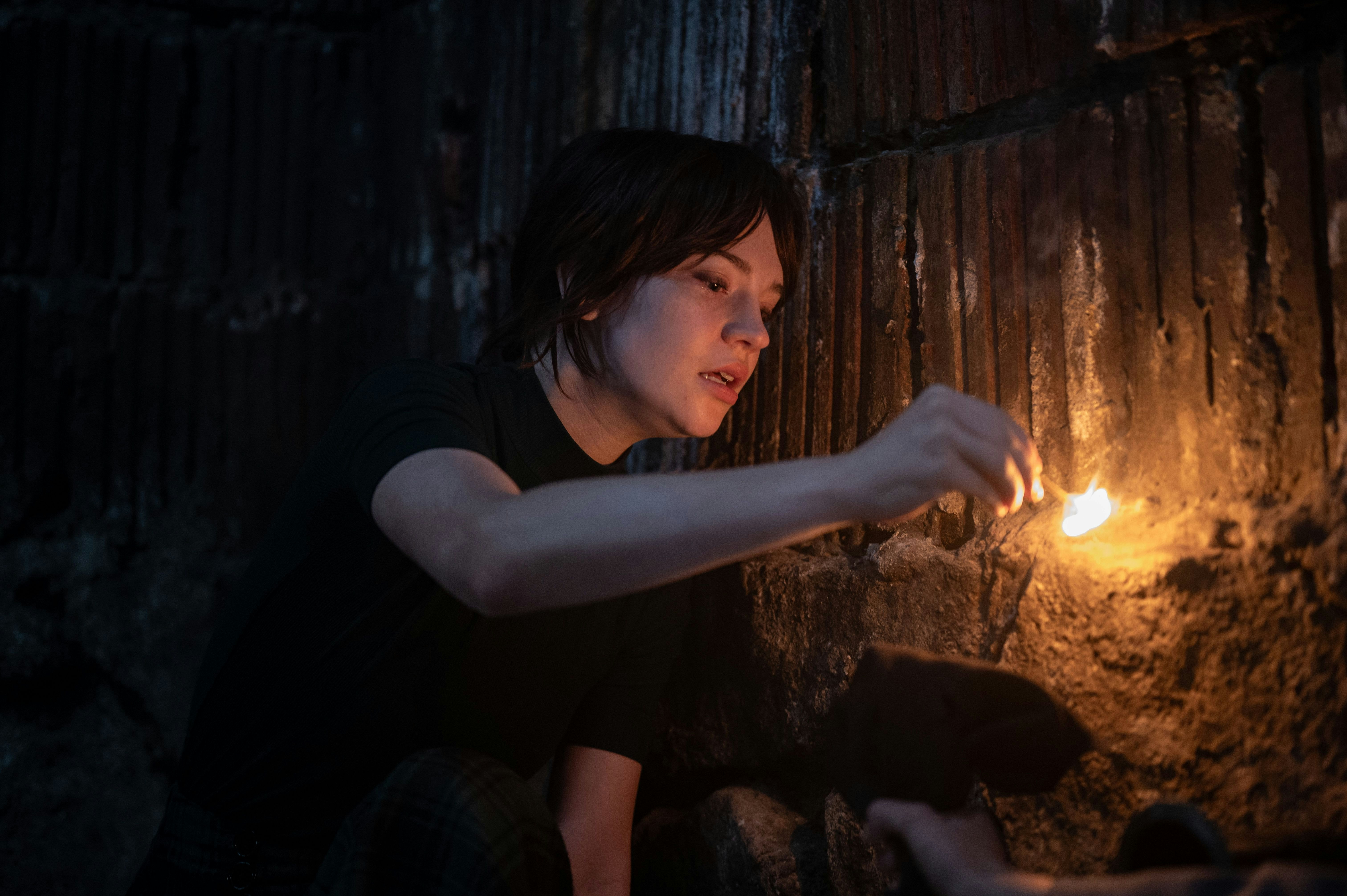
But unlike Fielder, whose alleged purpose in The Rehearsal is to help people confront a personal challenge, Reed has loftier ambitions. Beck explains that the character’s ultimate goal is to conquer human psychology through careful planning. He compares it to the way both religious and cult leaders operate: “People that are thinking 10 steps ahead can exert control and manipulate people into things that they otherwise wouldn't do.”
“All religion is kind of like a form of manipulating people's actions and beliefs and manipulating our laws,” adds Woods, finally laying bare the question at the heart of Heretic. “Reed is testing his hypothesis to see if he can pull it off.”
Whether he succeeds or fails is a debate for a future date — ideally, once everyone has had a chance to see Heretic for themselves. But in the meantime, there’s one burning mystery that’s still plaguing Beck and Woods, and it has everything to do with a certain bumbling Star Wars alien.
“The thing that we're curious about is: Did Hugh Grant know about Jar Jar Binks before reading the script and taking on this role?” Woods brings the question up unprompted before I even have a chance to ask it. “Did he watch Star Wars: Episode One — The Phantom Menace just to know how to impersonate Jar Jar? We don't know, but he's the kind of actor who would definitely watch that entire movie just to know what Jar Jar sounds like.”
“And then probably watch it on repeat,” Beck adds. “Just the scenes with Jar Jar. Time and time again.”







